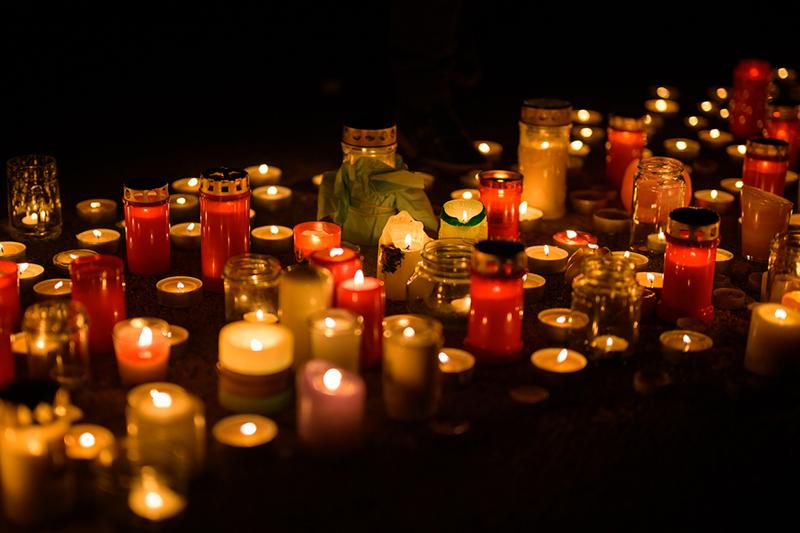Since the attack on Israel by Hamas on 7 October 2023 and the resulting war in Gaza, UK universities have faced tough challenges around speech, protest and safety, and they have not handled them especially well.
The challenges have arisen because universities have a duty to protect both the freedom to express political views that are uncomfortable or distressing for some to hear and the freedom of students and staff to participate fully in the life of the university without discrimination, intimidation or harassment.
This is not a trade-off. Universities have a duty to uphold freedom of expression, which is protected by the law. That includes political protest against the actions of Israel’s government. But it does not include conduct that creates a hostile environment for Israeli and Jewish staff and students, or that disrupts teaching, libraries and study spaces, speaker meetings or graduation ceremonies.
Nor does it include hate speech, which soaks the discourse about Israel, or efforts to exclude others from participating in the life of the university, for example, by calling for campuses to become Zionist-free zones.
Excluding Zionists would in any case be illegal under the Equality Act 2010. But since 60 to 90 per cent of Jews identify as Zionist – depending on how the question is worded and when it’s asked – calling for Zionists to be excluded is in reality an antisemitic posture, whatever its advocates avow or believe.
- Protecting your work – and your values – in US higher education
- Spotlight guide: Dealing with division - the polarised university
- Three lessons for interfaith engagement on campus
Unfortunately, some university leaders have been cowed by the protesters. Some have confused neutrality and inaction. Some have looked away when political protest has crossed into harassment or made do with bland reassurances and vague calls for toleration, instead of enforcing university policies and regulations. Some don’t even dare to use the word “antisemitism” without hyphenation: “We deplore antisemitism-and-islamophobia,” they say. “We invite students who believe they have experienced antisemitism-or-islamophobia to join us for tea and biscuits.” And so on.
EDI departments have also failed to address antisemitism effectively, in some cases because of the political beliefs of their personnel, in other cases because of the kind of prejudice David Baddiel wrote about in in his essay Jews Don’t Count.
What is to be done? My answer to this question draws on recent work by the Intra-Communal Professorial Group (ICPG), a new charity that monitors antisemitism in UK universities. There are things that need to be done without delay and things that will inevitably take more time.
One thing that was already an urgent task in 2023 is to put in place detailed time, place and manner restrictions on political protests, and to enforce them rigorously, promptly and publicly, so that the university community sees and understands what is being done.
Take my university, UCL. Last year, the provost commented that an occupation which blocked access to the university library and declared the space a Zionist-free zone was “disruptive to the business of the university” but “in line with our Code of Conduct on free speech”.
But the Code of Practice was last updated in 2018, and it is anyone’s guess what exactly is in line with it, since it doesn’t mention disruption to the operations of the university or, for that matter, posters, chalking, light projection, amplification, encampments, nighttime limits or obstructing entrances or pathways.
We need a set of rules that protects both the right to vigorous political protest and the academic freedom of every member of the university to teach, study and conduct research, and to dissent from the mainstream. The University of Chicago has made a good fist of it. We can, too. And it’s worth bearing in mind that taking the initiative can protect universities from political interference.
The other main areas in which policies and regulations need to be developed and enforced are cyberbullying and civility.
There is a lot of enthusiasm for initiatives that promote disagreeing well, which is at least a welcome acknowledgement that disagreement is being managed badly. But while anti-Zionists oppose debate with their opponents on the grounds that to debate is to acknowledge the legitimacy of the other side, Jewish students fear that university leaderships see these initiatives as a way to avoid confronting aggression, and want to see regulations governing bullying and harassment enforced first.
For example, when the president of UCL’s Jewish Society reported being taunted as a “genocidal baby killer”, she was invited to a “talking session”. “They want me to ‘talk it out’ with people who called me psychotic and genocidal,” she said, “who took photos of me and circulated them. These are not nice people.”
Turning to things that will take more time, the most important long-term task is tackling the ideological capture of departments and the boycott movement.
Academic freedom is not the same thing as free speech. It is a distinct institutional duty, grounded in the Education Reform Act 1988, designed to protect the pursuit of knowledge from political control. But academic freedom is also threatened from within universities by ideological monocultures.
Cary Nelson, former president of the American Association of University Professors, commented about this sardonically: “Some programmes are well on their way to running Zionists out of their unit. That will put an end to complaints of antisemitism.”
The ICPG has useful guidance on this topic. As they explain, departmental orthodoxies can silence dissent and chill scholarly enquiry. So, as well as resisting pressures to become ideological actors themselves, universities need to prevent their departments from doing so.
Departments need instead to foster intellectual pluralism, not least by making sure that hiring practices and the curriculum reflect the university’s commitment to academic values instead of reinforcing a political agenda or an ideological stance. They should not be allowed to issue collective political statements – as departments at SOAS, Goldsmiths, Leeds, Warwick and KCL have done – that create an atmosphere in which those who disagree become professionally vulnerable and sometimes personally unsafe.
Universities should also reject calls for blanket academic boycotts and take action against unofficial academic boycotts. Excluding Israeli scholars, for example, is not a form of conscientious objection, it is discriminatory exclusion that violates the principle of academic freedom. And universities must not sacrifice academic freedom for what some of their members perceive as the greater good.
In sum, the radical anti-Zionism that has flourished on campuses since 7 October is not merely a critique of a foreign government. When Israel and Zionism are demonised, and not merely criticised or opposed, Jewish students are seen as legitimate targets for discrimination, harassment, abuse or attack. Universities need to confront radical anti-Zionism and acknowledge the centrality of Israel to the identity of the majority of Jews. Their failure to meet this challenge – often a result of confusing inaction and neutrality – has been a moral, institutional and academic disaster.
John Hyman is the Grote chair in philosophy of mind and logic at UCL. He is a member of member of the Intra-Communal Professorial Group (ICPG).
If you would like advice and insight from academics and university staff delivered direct to your inbox each week, sign up for the Campus newsletter.




comment1
(No subject)